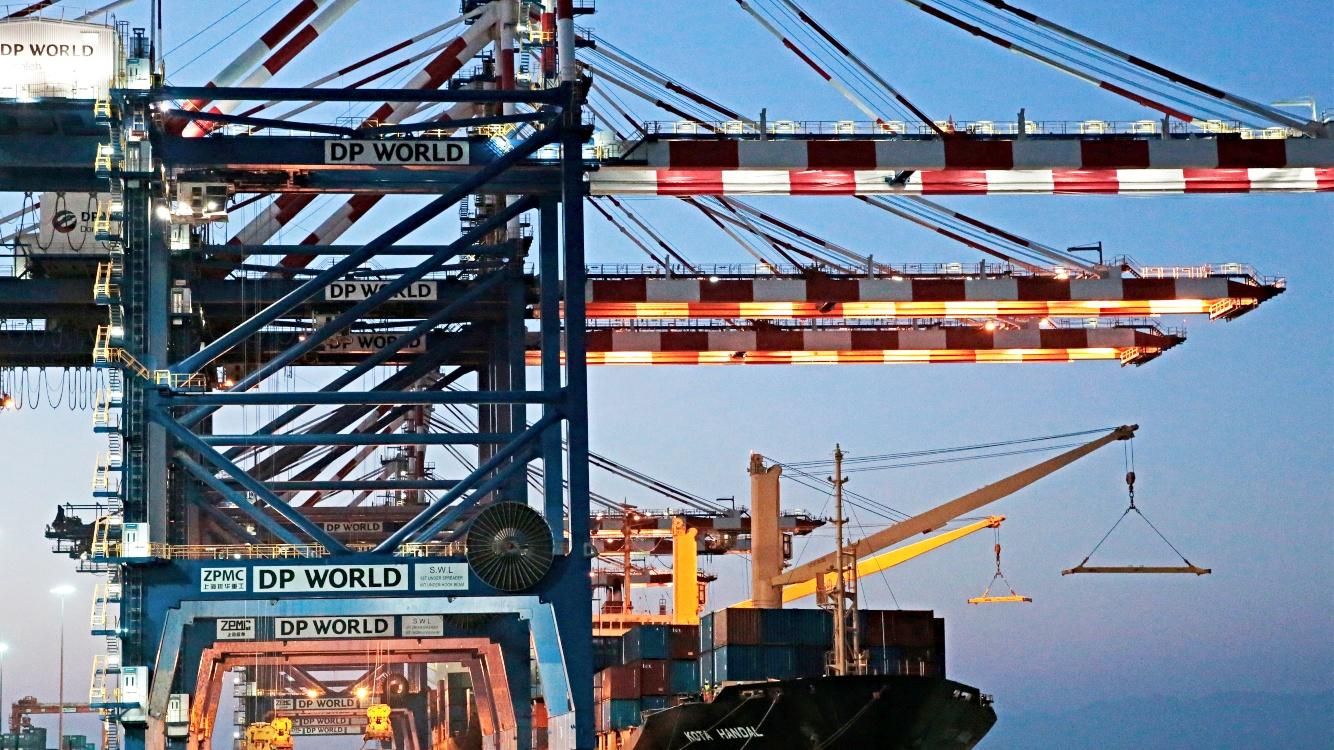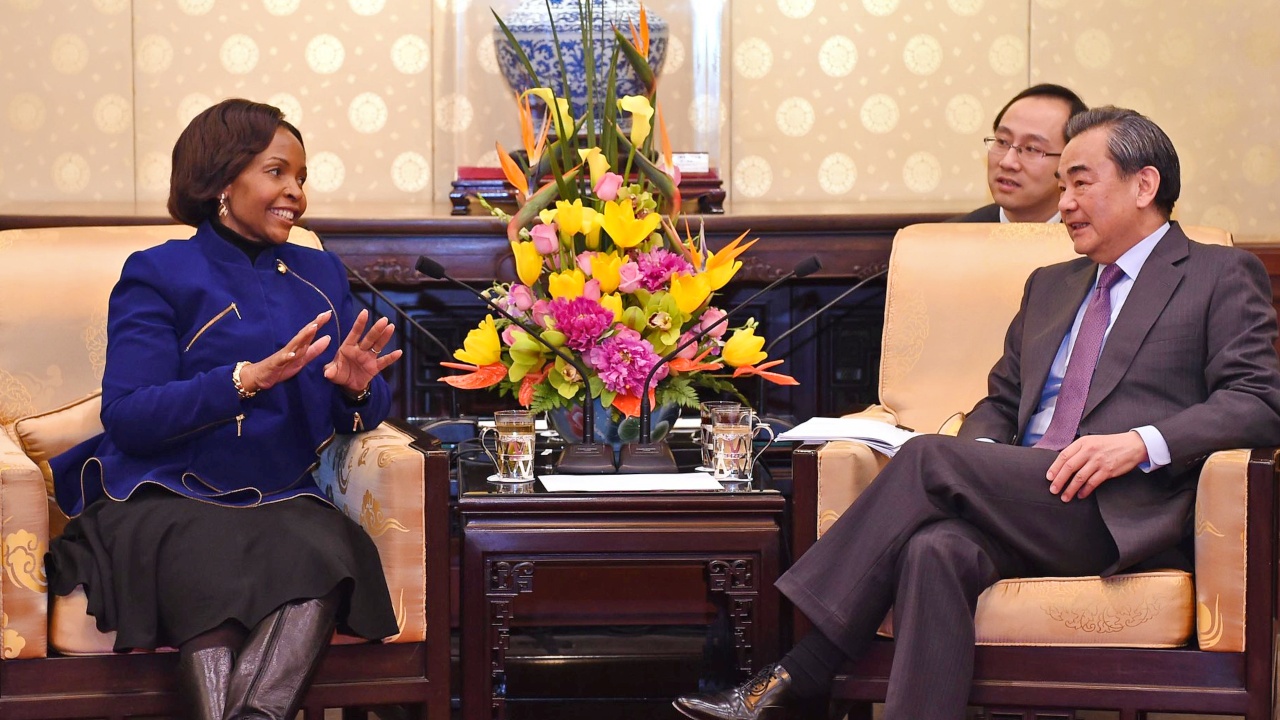The European Union’s insistence on Economic Partnership Agreements with individual countries, as its principal trade policy instrument for relations with Africa, undermines its support for the African Continental Free Trade Agreement (AfCFTA). This in turn weakens prospects for a continent-to-continent free trade area between Africa and the EU.
This post is part of the African trade policy series based on research at the African Trade Policy Programme, hosted by the LSE Firoz Lalji Institute for Africa.
In a recent paper about the implications of the African Continental Free Trade Agreement (AfCFTA) for an EU-Africa trade agreement, Sean Woolfrey argues that while the AfCFTA is a good step forward in Africa’s integration efforts, it is too early to think about Africa negotiating as one bloc with a partner like the European Union (EU). While we agree that a continent-to-continent agreement is not feasible in the short term, we argue that EU trade policy towards Africa today significantly affects Africa’s ability to negotiate as one tomorrow.
The European Commission has repeatedly expressed its support for the AfCFTA, calling it ‘a step towards our long-term objective of a continent-to-continent free trade area between Africa and the EU’. This is backed by concrete efforts to strengthen and better target measures as part of the World Trade Organisation’s Aid for Trade initiative to overcome supply side constraints, and more broadly to provide investment, development and financial support across a wide-range of policy areas. But European trade policy towards Africa remains at odds with the publicly expressed intention to support AfCFTA-led integration of the African continent.
EU trade policy is the core of the problem
Through the AfCFTA Agreement, African countries have committed themselves to ‘lay the foundation for the establishment of a Continental Customs Union at a later stage’, which increasingly involves policy harmonisation in a range of areas, including tariffs, intellectual property rights, competition policy, investment and digital trade.
As one of the flagship projects of the Africa Union’s Agenda 2063, the AfCFTA represents a major step in Africa’s efforts to ’speak with one voice and act collectively to promote our common interests and positions in the international arena’. At a summit held in Nouakchott, Mauritania in July 2018, the AU renewed the commitment ’to engage external partners as one … speaking with one voice’ and urged member states ‘to abstain from entering into bilateral trading arrangements until the entry into force of the Agreement establishing the AfCFTA.’
However, translating this commitment into action has been elusive. No institution has been authorised to negotiate on behalf of the continent, and some countries are already actively negotiating trade agreements with third actors. This, we believe, is caused by misaligned and divisive incentives cast upon African countries and regional groupings. EU trade policy towards Africa today is a major part of the problem.
The regime governing trade relations between the EU and Africa varies based on geography (such as whether the African country is in north Africa or below the Sahara), level of development (whether it is a least-developed or a developing country), whether there are existing Economic Partnership Agreements (EPAs) in place or the Generalised System of Preferences (GSP) that applies to its exports, and so on. Because these variations between countries are prevalent within each regional economic community, African countries are often put in the difficult position of having to choose between sticking to their regional commitments, on the one hand, and the trade regime set by the EU, on the other.
The fragmentation of EU trade policy towards Africa, in effect, constitutes a negative incentive for achieving trade policy coherence on the African side. Integral to Europe’s patchwork of agreements and instruments is a conditionality for security of market access, particularly on non-least-developed countries, to accept and adhere to the trade regime devised and imposed by the EU for its own purposes. African countries, north and south of the Sahara, were not the demandeurs of this regime. While they do have agency over the choices that are made, faced with a colonial legacy of little intra-African trade and the reality of Europe as a dominant, stable and mature market with a long history of preferential market access, the irresistible choice has been to accept the overwhelming incentive of adherence to this regime.
Trapped in this regime, as a result, interests within African countries, trade structures and investment patterns are aligned with the status quo. Only a country like Nigeria, a hegemon in its region with a large internal market, including a fuel-dominated export sector that hardly attracts duties or quotas in the EU market, could muster the courage to reject EPAs.
As we noted in another article, while Africa can benefit from EPAs in some cases, the gains would essentially be concentrated in a few agricultural products (such as rice, milk and dairy products, sugar, and meat) for countries not eligible for the Everything but Arms (EBA) scheme, which removes tariffs and quotas covering exports into the EU (except for arms). By contrast, the increase in the EU’s exports to Africa is considerably larger and better distributed across economic sectors, with the highest growth in industrial products. Moreover, stringent requirements imposed by the EU, particularly for agricultural products (including on sanitary and phytosanitary measures) limit gains from African agricultural exports to the EU market. Moreover, the expected increase in African exports to the EU would come at the expense of potential intra-African trade.
The EU has begun to move forward into deepening its existing EPAs and arrangements in north Africa. Negotiations have already commenced to add new chapters on investment, services and intellectual property rights. Similarly in North Africa, the EU is negotiating Deep and Comprehensive Free Trade Area (DCFTA) agreements with a number of these countries.
The risk is that, if care is not taken, this will deepen divisions between African countries, making African trade policy harmonisation even more difficult. Yet the success of the AfCFTA and continental integration, accompanied by prosperity and stability on the continent, is in the interest of Africa as much as the EU. But the new ‘geopolitical EU’ has been unable to reimagine how its powers can be used to support integration within Africa, rather than perpetuate and even accentuate its divisions.
The importance of sequencing
If trade policy coherence is ever to be achieved on the African side, there is a need for proper sequencing of trade liberalisation with the EU and other advanced industrial countries, which should come only after the AfCFTA is fully in place. This will ensure that, while the gains from EPAs or the Association Agreements for both Africa and the EU would still materialise later, the negative effects of displacing intra-African trade and its industrialisation potential will be mitigated.
African countries expect greater gains from intra-African trade reforms. The AfCFTA, if successfully implemented, will boost trade and facilitate industrialisation. Indeed, successive analyses by the Economic Commission for Africa of the potential impact of the AfCFTA reforms demonstrate such potential. The most recent assessment, which took liberalisation of trade in goods and services along with reduction of non-tariff measures into account, suggests that the current share of intra-African trade would nearly double following the AfCFTA reforms. Most of the gains will accrue to the industrial and agri-food sectors as well as services, which are critical for Africa’s transformation.
As such, the sequencing of trade reforms and negotiation of new trade deals do matter for Africa. AfCFTA implementation should be prioritised over reciprocal trade deals with third parties including the UK, which has largely copied the EU in its post-Brexit independent trade policy. In time, this approach will ensure substantial benefits for all. Only then can the required incentives emerge for the AfCFTA to become an instrument for deeper integration within the continent and a continental platform for engaging with third parties.
An alternative policy approach
Despite the AfCFTA, African trade policy arrangements remain fragmented, for which the EU is partly responsible. The challenge for Africa is to find an alternative pathway that better aligns incentives and sequences trade openings with the EU and other advanced partners. Two considerations should illuminate any such pathway.
First, the EU’s trade relationship with Africa is highly asymmetrical. Second, Africa accounts for a very small share of EU imports, and of world trade. For a transitional period possibly benchmarked against milestones in AfCFTA implementation and the gains emerging from it, a good development case can be made for the EU to reintroduce unilateral market access that is duty-free and quota-free to all African countries, with a unified ‘rules of origin’ regime. This will require multilateral legitimisation through a new WTO waiver.
One element in overcoming the current paralysis at the WTO must be recognition that its ‘one size fits all’ rules require reimagination to meet the 21st century realities and challenges facing late developers, such as African countries. Given the weight of the combined number of EU and African members of the WTO, and the precedent established by the US’s African Growth and Opportunity Act (AGOA) that provides sub-Saharan African countries duty-free access to the US market, securing a waiver should not be an insurmountable feat.
The current rethinking of AGOA is partly stirred by the broad implications of the EU’s reciprocity model. Concessions to Africa as the world’s least developed continent, which allows non-reciprocal access to the EU and other advanced country markets for a fixed transitional period, can only be fair. It incentivises African countries to seek trade opportunities with each other and mitigate the risks of trade diversion. By ensuring the right sequencing for the AfCFTA, this will also help Africa to achieve its potential for strong and diverse growth in intra-African trade with inclusive and transformational consequences. Finally, this will also position Africa to fulfil its aspiration in trade negotiations to ‘speak with one voice and act collectively to promote our common interests’.
Photo by Frans Van Heerden from Pexels.





